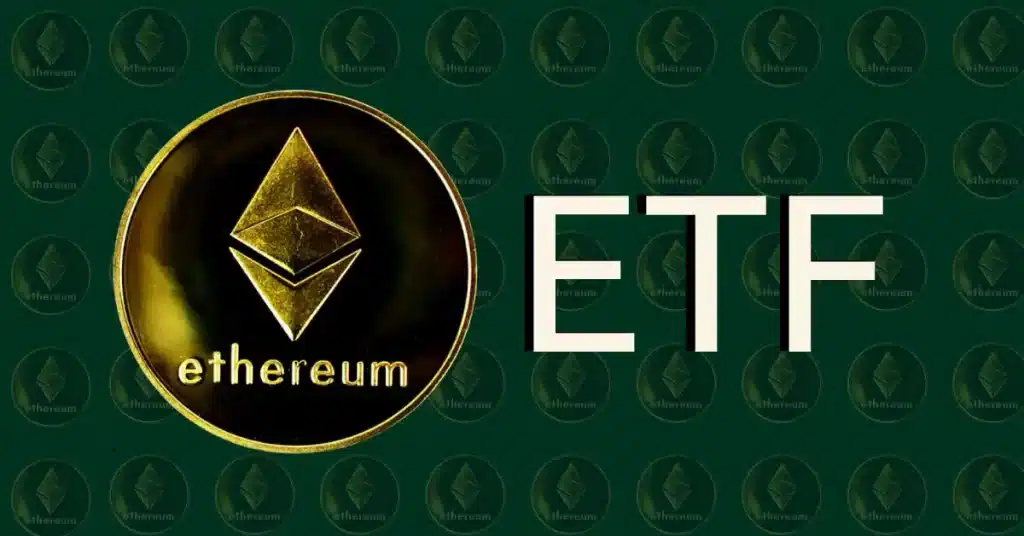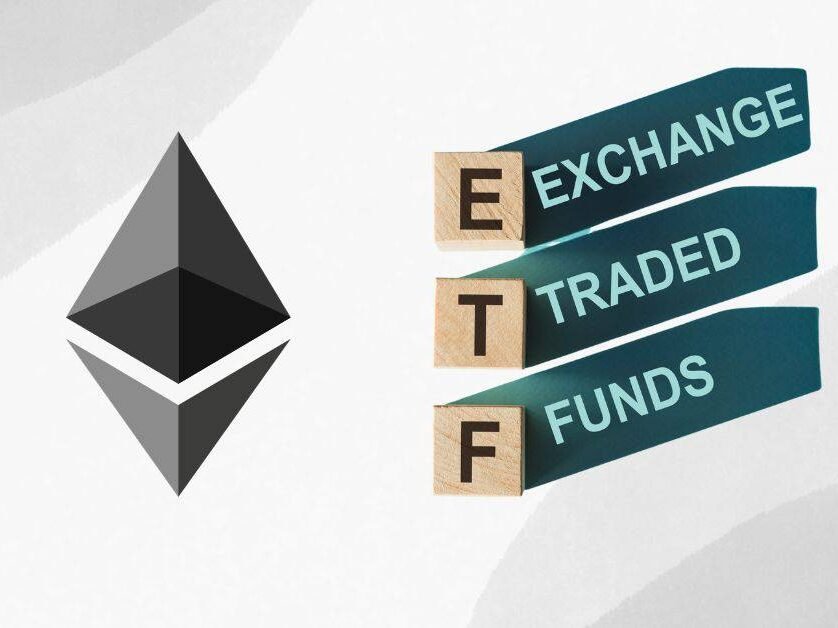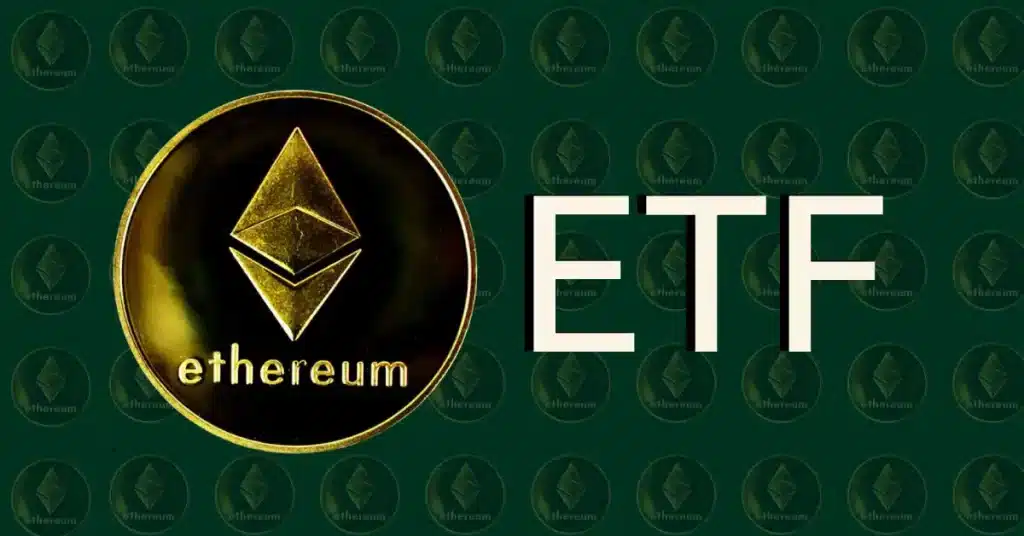In the evolving landscape of financial markets, the advent of cryptocurrency has been one of the most revolutionary developments of the 21st century. Among the myriad cryptocurrencies that have emerged, Ethereum stands out due to its robust technological foundation and widespread adoption. As the financial world continues to integrate digital assets, one of the latest and most talked-about innovations is the Ethereum Exchange-Traded Fund (ETF). This article delves into what an Ethereum ETF is, its significance, how it works, and its potential impact on both the traditional financial market and the crypto space.

What is an Ethereum ETF?
An Exchange-Traded Fund (ETF) is a type of investment fund and exchange-traded product, meaning it is traded on stock exchanges, much like stocks. An Ethereum ETF, specifically, is an investment fund that tracks the price of Ethereum (ETH), the native cryptocurrency of the Ethereum blockchain. Instead of purchasing Ethereum directly, investors can buy shares of the ETF, which represents a certain amount of Ethereum. This financial product offers a way for investors to gain exposure to Ethereum without the need to manage the technical aspects of buying, storing, and securing the cryptocurrency themselves.

The Importance of an Ethereum ETF
The introduction of an Ethereum ETF represents a significant milestone in the mainstream adoption of cryptocurrency. It serves as a bridge between traditional financial markets and the digital asset world, making Ethereum accessible to a broader range of investors. For many, the complexities of managing cryptocurrency, such as wallet security and the fear of hacks or loss, are significant deterrents. An ETF eliminates these concerns, as it is a regulated financial product managed by professional fund managers who take care of these aspects.
Moreover, an Ethereum ETF opens the door for institutional investors, who often have restrictions on the types of assets they can invest in, to gain exposure to Ethereum. These institutional players, including pension funds, mutual funds, and insurance companies, manage vast amounts of capital. Their entry into the Ethereum market could lead to a significant increase in demand and, consequently, the price of Ethereum.
How Does an Ethereum ETF Work?
An Ethereum ETF operates similarly to other ETFs that track commodities like gold or oil. The fund manager buys Ethereum on the open market and holds it on behalf of the fund’s investors. The value of the ETF shares fluctuates in line with the price of Ethereum. When investors buy shares of the ETF, they are effectively purchasing a portion of the Ethereum held by the fund, although they do not own the cryptocurrency directly.
One of the primary benefits of an ETF is its liquidity. Since ETFs are traded on major stock exchanges, they can be bought and sold throughout the trading day at market prices. This is in contrast to mutual funds, which are only traded at the end of the trading day at the net asset value (NAV). The liquidity and ease of trading make ETFs an attractive option for investors looking to gain exposure to Ethereum without the hassles of dealing with cryptocurrency exchanges.

The Path to Approval Ethereum ETF: Regulatory Challenges
The road to the approval of an Ethereum ETF has been fraught with regulatory hurdles. In the United States, the Securities and Exchange Commission (SEC) has been cautious in approving cryptocurrency ETFs due to concerns over market manipulation, volatility, and investor protection. However, with the increasing maturity of the cryptocurrency market, there has been a growing push for the approval of such products.
In 2021, the first Bitcoin ETF was approved in Canada, which set a precedent for cryptocurrency ETFs. This approval was seen as a significant step forward, and it fuelled speculation that an Ethereum ETF might soon follow. The approval process for an Ethereum ETF involves rigorous scrutiny by regulators, who assess the fund’s structure, the security of the assets, and the transparency of the pricing mechanism.
One of the key considerations for regulators is ensuring that the underlying assets (in this case, Ethereum) are secure and that the ETF’s price accurately reflects the market value of Ethereum. This involves using reputable custodians to hold the cryptocurrency and employing reliable pricing sources.
The Impact on the Ethereum ETF Market
The launch of an Ethereum ETF could have a profound impact on the Ethereum market. Firstly, it could lead to increased demand for Ethereum as institutional investors and retail investors alike flock to this new investment vehicle. This increased demand could drive up the price of Ethereum, potentially leading to higher market capitalization and greater overall adoption.
Furthermore, the availability of an Ethereum ETF could enhance Ethereum’s credibility as an asset class. Just as the approval of a Bitcoin ETF helped to legitimize Bitcoin in the eyes of traditional investors, an Ethereum ETF could do the same for Ethereum. This could lead to a virtuous cycle where increased adoption drives up the price, which in turn attracts more investors.
However, it is also important to consider the potential downsides. The introduction of an ETF could lead to increased volatility in the Ethereum market, as large volumes of shares could be traded based on short-term price movements. Moreover, if the ETF becomes the primary way that investors gain exposure to Ethereum, it could concentrate power in the hands of a few large fund managers, which could have implications for the decentralization ethos that is central to the cryptocurrency movement.

The Future of Ethereum ETF
The future of Ethereum ETFs looks promising, especially as regulatory frameworks around cryptocurrencies continue to evolve. Several countries, including Canada and Brazil, have already approved Ethereum ETFs, and it is likely that more will follow. In the United States, the approval of an Ethereum ETF would be a watershed moment, likely paving the way for further integration of digital assets into mainstream financial market
